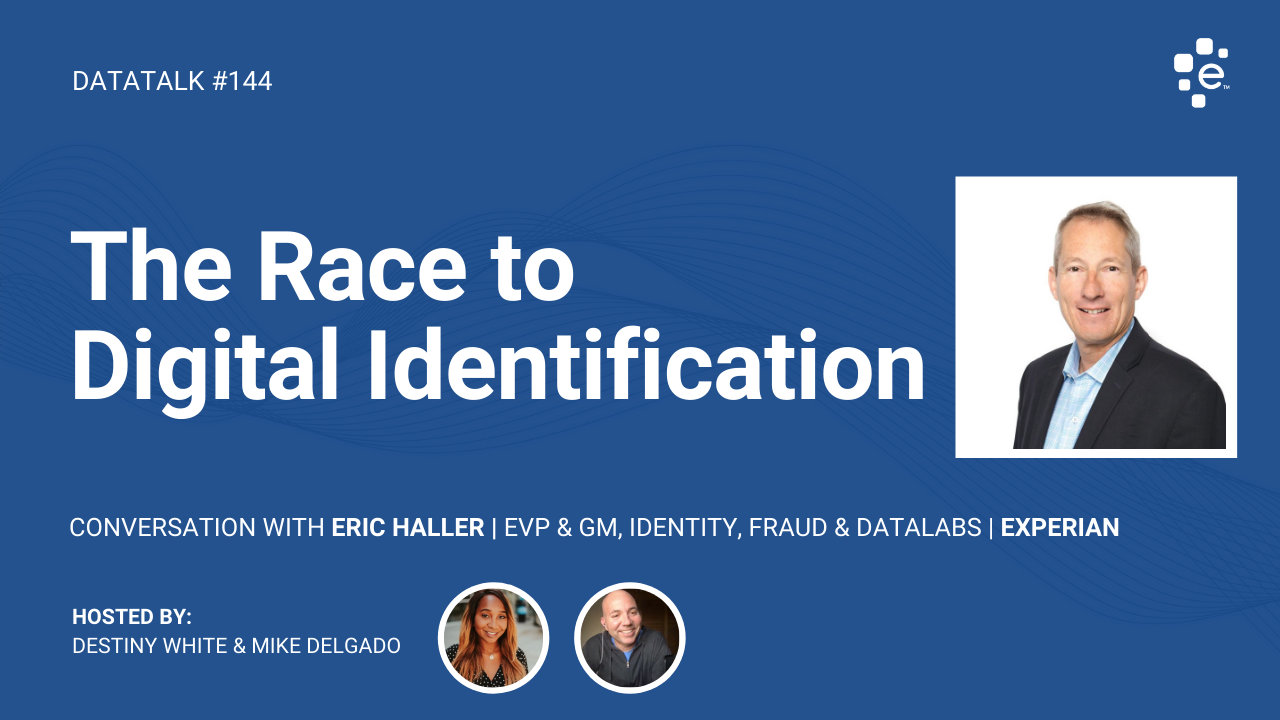The Race to Digital Identification w/ Eric Haller @ExperianDataLabs (Episode 144) #DataTalk
Listen (or download) the podcast:
Every week, we talk about important data and analytics topics with data science leaders from around the world. You can subscribe to the DataTalk podcast on iTunes, Google Play, Stitcher, SoundCloud, and Spotify.
DataTalk features data science leaders at MIT, Caltech, United Nations, Gartner, Twitter, Salesforce, Amazon, UBER, IBM, LinkedIn, Spotify, Dow Jones, and dozens of other startups and top data companies.
In this week’s #DataTalk, we chat with Eric Haller, Executive Vice President and General Manager of Identity, Fraud & DataLabs at Experian, about the race to digital identification. We talk about how Eric’s role has evolved at Experian, what Experian is doing to mitigate fraud and identity theft for consumers, and the meaning of digital identification. Eric also discusses the digital shift every industry is facing amidst the COVID-19 pandemic, the future of digital identification, and recent innovations in deepfake technology.
Video Highlights from the Conversation:
- What Experian is Doing to Mitigate Fraud and Identity Theft
- Deepfake A.I. Technology
- Defining Digital Identification
- COVID-19 and the Digital Shift
- The Future of Digital Identification and Deepfake A.I.
This show is hosted by Destiny White and Mike Delgado. Please reach out with suggestions for future topics or guests.
You can also catch the full video interview here.
About Eric Haller
Eric Haller is the Executive Vice President and General Manager of Identity, Fraud & DataLabs at Experian. Eric also serves on the Columbia University SPS Board of Overseers.
About Experian DataLabs
Experian DataLabs helps businesses solve strategic marketing and risk-management problems through an advanced data analysis process and research and development. Focused on innovating new data sources with an emphasis on financial services, telecommunications, and healthcare, Experian DataLabs is staffed with a multidisciplinary group of data scientists with PhDs and applied research practitioners with expertise in advanced analytics and machine learning, as well as other advanced statistical methods. Experts in applying cutting-edge data science to real-world business situations, DataLabs utilizes Experian’s vast data assets and is supported by Experian’s global network and resources. Employing deep domain expertise and industry knowledge reduces client exposure during the development process. Nearly a petabyte of data storage is provisioned by Experian in the United States to support research and development activities. The environment allows for multiple Big Data projects to occur simultaneously.
